October 4, 2019 / mascara / 0 Comments
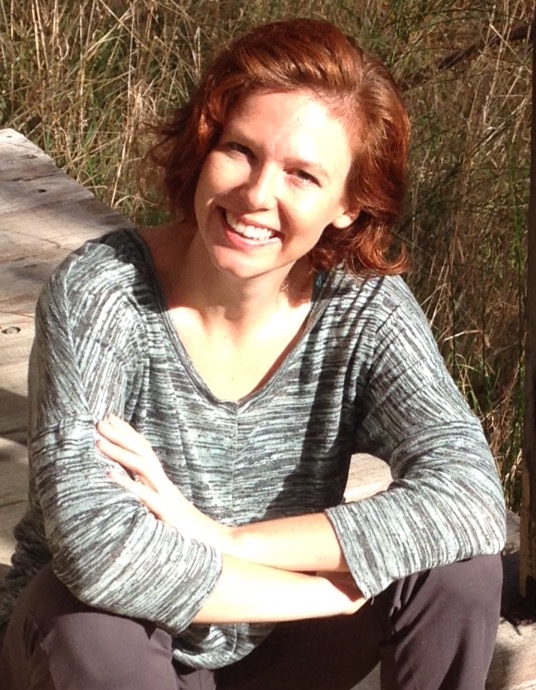 Bronwyn Lovell’s poetry has featured in Best Australian Poems, Meanjin, Southerly, Cordite, Antipodes, Rabbit, Verity La, and Strange Horizons. She has won the Arts Queensland Val Vallis Award and the Adrien Abbott Poetry Poetry Prize. She has been shortlisted for the Judith Wright, Fair Australia, Newcastle, Montreal, and Bridport Prizes.
Bronwyn Lovell’s poetry has featured in Best Australian Poems, Meanjin, Southerly, Cordite, Antipodes, Rabbit, Verity La, and Strange Horizons. She has won the Arts Queensland Val Vallis Award and the Adrien Abbott Poetry Poetry Prize. She has been shortlisted for the Judith Wright, Fair Australia, Newcastle, Montreal, and Bridport Prizes.
Working Girl
You and I can both get jobs
and finally see what it means to be living
— “Fast Car”, Tracy Chapman
i.
I trade time for dollars at the minimum
wage exchange. I wipe tables instead
of writing poems. I am well versed
in the cycle of reheating and eating
frozen meals in the windowless staff
room. I know my worth in hourly
increments. I have purchased property
with my body. I have a small patch
of grass the bank lets me mow. I live
within my fence, make my garden
pretty, iron my uniform to hang an
empty effigy to my hollow shape.
I am paying the bank off for a metal
box in which I cart myself across
suburbs pumping noxious gas exhaust
on my way to the shopping centre
where I serve the fried flesh of dead
animals to pigs who don’t think they
are animals. I scrape the waste from
their plates into the trash to be shipped
out to stink up some other place
where garbage piles like body bags.
ii.
I want to do the real work — I want
to write the world anew but that’s
not what companies pay me to do.
I am the overqualified unskilled.
I am the doctoral student you drive
-thru, that see-through counter chick.
Sometimes I wonder what lipstick,
wig, tit tassels and a spray tan might
do. How much could I make? What
would it strip from me and could I
break even, pay my way out? What’s
a small heart-sink for cash in hand?
iii.
I see how it happens — an overdue
power bill, medication for the cat,
funding cuts, no penalty rates, my
savings account stripped bare.
There isn’t a woman in my lineage
who hasn’t earned her keep.
Stripper me does not differ greatly
from strapped me. She’s just a girl
trying to make some money. She’s
simply more practical: writes off
fish-net stockings and pole-dancing
classes on her tax. It wouldn’t take
much — full body wax, theatre-thick
foundation, waterproof mascara
and a spine. The girls in International
House do it. Call them Asian beauties
or student slaves. Call me by my name
badge, ‘Love’, or something else entirely.
October 4, 2019 / mascara / 0 Comments
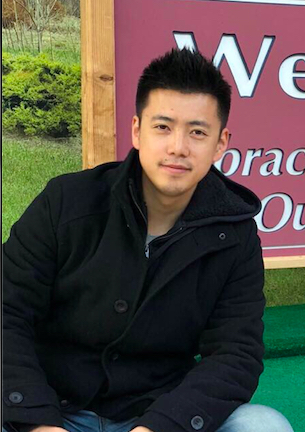 Aiden Heung is a native Chinese poet, born and raised on the edge of the Tibetan Plateau; he holds an MA in literature from Tongji University in Shanghai where he currently works and lives. His poems in English are published or forthcoming in many online and offline magazines, most notably Literary Shanghai, The Shanghai Literary Review, Cha: An Asian Literary Journal, New English Review, A Shanghai Poetry Zine, Aesthetic Apostle among many others. He is an avid reader. He can be found at Aiden-Heung.com or www.twitter.com/aidenheung
Aiden Heung is a native Chinese poet, born and raised on the edge of the Tibetan Plateau; he holds an MA in literature from Tongji University in Shanghai where he currently works and lives. His poems in English are published or forthcoming in many online and offline magazines, most notably Literary Shanghai, The Shanghai Literary Review, Cha: An Asian Literary Journal, New English Review, A Shanghai Poetry Zine, Aesthetic Apostle among many others. He is an avid reader. He can be found at Aiden-Heung.com or www.twitter.com/aidenheung
Ritual
The face I’ve put on for almost twelve hours is in terrible
need of repair. I take off my face and rinse it
in the sink scrub it cleanse it smear on some lotion
and hang it in the cool air to dry. I look in the mirror –
blank gaze of a man staring like a black bird before winter
who’s forgotten the migration routes.
Time urges everything into a mound
of dirty underpants in the hamper. The only
thing worthy of preservation is the face. It
should be charming again tomorrow when I use
it in the office, and I should be happy as one who can
easily fit in and leave no trace of recognition. You don’t
know me.
October 4, 2019 / mascara / 0 Comments
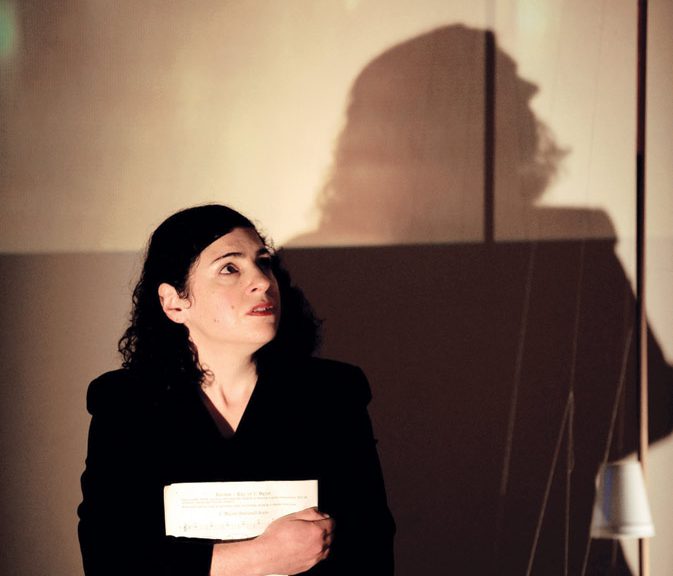 Angela Costi has four poetry collections: Dinted Halos (Hit&Miss Publications, 2003), Prayers for the Wicked (Floodtide Audio and Text, 2005), Honey and Salt (Five Islands Press, 2007) and Lost in Mid-Verse (Owl Publishing, 2014). Her full-length play, Shimmer, has been remounted at several South Australian secondary colleges, 2016-17.
Angela Costi has four poetry collections: Dinted Halos (Hit&Miss Publications, 2003), Prayers for the Wicked (Floodtide Audio and Text, 2005), Honey and Salt (Five Islands Press, 2007) and Lost in Mid-Verse (Owl Publishing, 2014). Her full-length play, Shimmer, has been remounted at several South Australian secondary colleges, 2016-17.
Her poetry, essays and reviews have been published in Australia and overseas, including Hecate, Southerly, LINQ, Meanjin, Tattoo Highway, Alternative Law Journal and Peril. In 2009-10, with funding from the Australia Council for the Arts, she travelled to Japan to work on an international collaboration involving her poetry and the Stringraphy Ensemble. Her essay about this collaboration, and performance text, A Nest of Cinnamon, are published in Cordite, 2009 and 2013.
The Weed Eaters
Flower beds, veggie patches, nature strips, paved courtyards
you are all under attack, the weeds have arrived in droves
deep-rooting themselves in your clay-based soil
they pretend friendship but you know they are here to compete.
I search for my tools of decapitation and with my trusty glove
begin the ritual of tearing them out, they may sting, they may weep,
they may resist the tug, but I have no sympathy for their resilience
despite their appeal to my heritage of peasant foraging and eating.
Baba with his weak knees and ailing joints continues the ritual
of picking them selectively from his yard of green excess,
with his large plastic bag, seductive swing in his grip,
each nettle, thistle, dandelion, creeper and clover are his.
He offers me their contents as the world’s source of wisdom
but regrets with a ragged look not knowing how to cook them like
‘your mother’. I stare at them and can’t see the scripture
or verse of Cyprus yet promise to keep them safe in my fridge.
At night, I can hear her robed in her silence opening the fridge.
I know what she’s up to, feeding her hunger for nostalgia,
she has them cooking in my non-stick pan, then slides them
onto two plates, squeezes the lemon liberally, drizzles the oil.
Paused in the hallway, I almost return to my bed, but
her bitterness seeps in and I long for the horta of childhood.
Mama is waiting. We eat as one, ravenous for what was.
The Good Citizens of Melbourne
Trams are the good citizens of Melbourne… There are nearly 700 trams on Melbourne streets. Looking after them takes a lot of men: cleaners, overhaulers, tradesmen of all sorts…
—Citizen Tram, a 1960s film by the Melbourne and Metropolitan Tramways Board
Sitting next to my young mother is Deena, her sister
with eyes men fall into.
She’s older and focused on
getting them to work,
making sure they don’t miss
stop 20. Facing her
but almost falling into her lap is Thelema, her cousin
with arms and legs that don’t stop talking:
did you hear about Effie? Yes, you know her…
she’s the one with the glass eye,
the one that works the zipper machine…
She’s fifteen, younger than me – she looks fifty.
She has a proxenia,
he’s at least thirty,
her parents want to get rid of her
because of the zeemia
with the gelato shop boy.
With a slight lean of her head
away from the window
Deena intervenes:
Effie shouldn’t be forced,
it’s criminal, her parents are vavaree!
Then my mother, who is a mere fifteen herself
says: Maybe she’s better off,
who wants to be sklavee
for the rich man
and his needle and thread machine?
Deena, Thelema, Young Mum are
a trio of handbags, lunch boxes,
orange, apricot, lavender skirts,
shirts with wide white collars
showing neck bones, smiles
of modest pink lipstick,
earrings that clasp the ear tight,
knees protruding with pent up
bursts of freedom as they speak
in a flurry of Cypriot-Greek
on the busy tram
heading to a factory
where young women
make fashion
for others.
The tram
halts
before stop 20,
the Driver
turns his mouth into a fist:
on this tram we speak English
if you keep up with your gibberish
you can get off at the next stop!
The language hovers over their heads
like a thought cloud of orexee,
darkly spiralling,
sending them down into a well
where there are no windows to see
the plum trees, the magpies, the milk bars…
Each day they caught that tram
they renewed their vow
of silence.
October 4, 2019 / mascara / 0 Comments
 Carolyn Gerrish is a Sydney poet. She has published five collections of poetry. The most recent The View from the Moon (Island Press, 2011). She enjoys performing her work and is currently working on her sixth collection.
Carolyn Gerrish is a Sydney poet. She has published five collections of poetry. The most recent The View from the Moon (Island Press, 2011). She enjoys performing her work and is currently working on her sixth collection.
Disconnect
at my new apartment block (circa 1935)
in the suburb where everything has
happened & is set to begin again there’s
only three flats (plus mine) & no one watches
T.V. (reception unavailable in the building)
Bin Night is an urban mystery Sorry
she says from behind her chained door
I think it’s Tuesday then again it could
be Wednesday & how effective are your
phone and internet connections? a nest
of fraying wires above the unlockable
letterboxes in the lobby
where a scissored gesture from a jaded
prankster could render you perennially
incomunicado
October 4, 2019 / mascara / 0 Comments
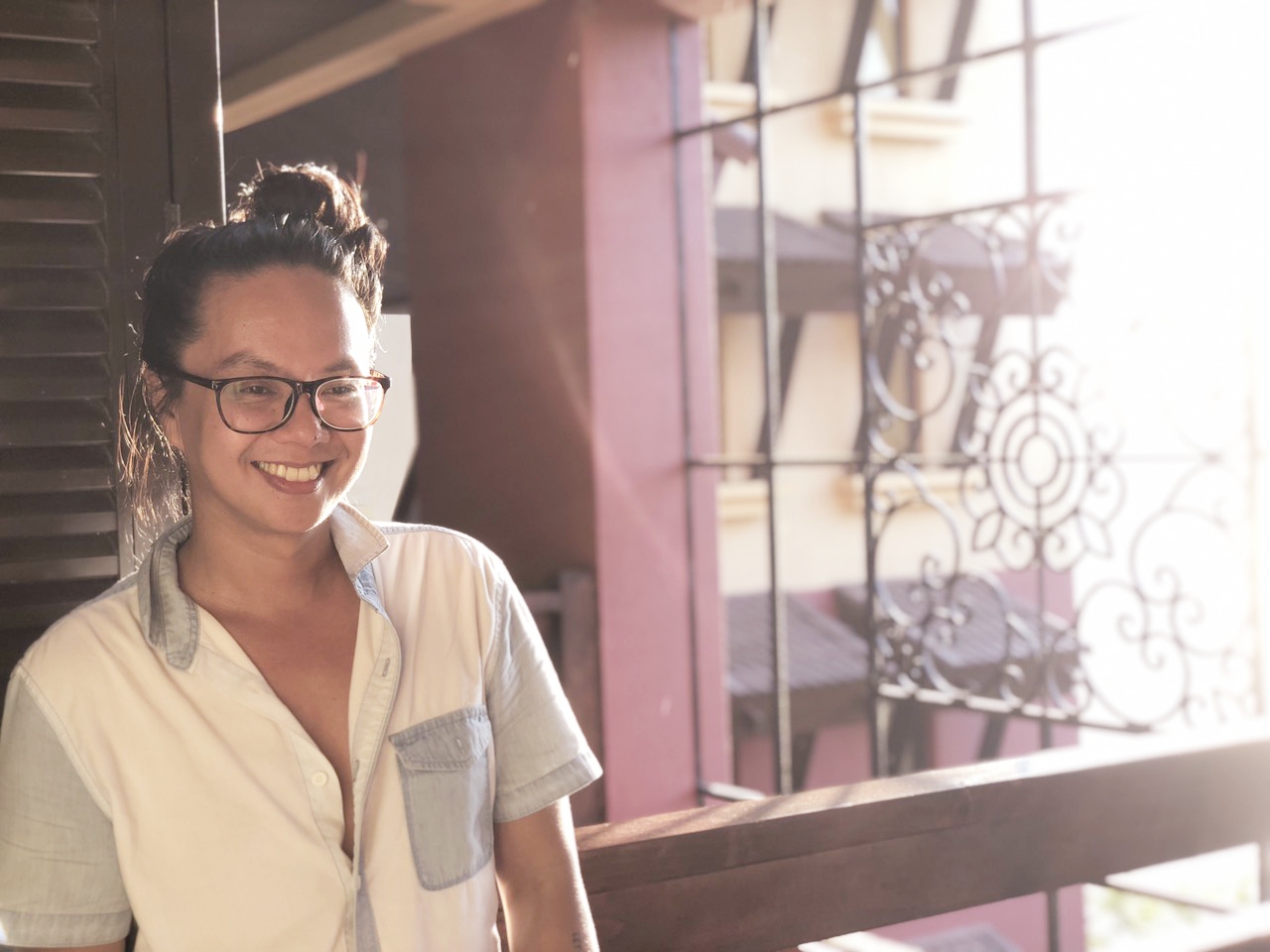 Mark Anthony Cayanan is from the Philippines. They obtained an MFA from the University of Wisconsin in Madison and are a PhD candidate at the University of Adelaide. Among their publications are the poetry books Narcissus (Ateneo de Manila UP, 2011) and Except you enthrall me (U of the Philippines P, 2013). Recent work has appeared or is forthcoming in Foglifter, The Spectacle, Dreginald, NightBlock, Crab Orchard Review, Cordite, and Lana Turner. A recipient of fellowships to Civitella Ranieri and Villa Sarkia, they teach literature and creative
Mark Anthony Cayanan is from the Philippines. They obtained an MFA from the University of Wisconsin in Madison and are a PhD candidate at the University of Adelaide. Among their publications are the poetry books Narcissus (Ateneo de Manila UP, 2011) and Except you enthrall me (U of the Philippines P, 2013). Recent work has appeared or is forthcoming in Foglifter, The Spectacle, Dreginald, NightBlock, Crab Orchard Review, Cordite, and Lana Turner. A recipient of fellowships to Civitella Ranieri and Villa Sarkia, they teach literature and creative
writing at the Ateneo de Manila University.
One among
Who gets off backpack heavy with sweaty clothes tired but ready to supply their name
at the front desk one of the unremarkable many
who before this was seat 27A kept asking for gin and ginger ale from a flight
attendant who during her stopover hired a catamaran for the day to go snorkelling
four days later a passenger will grow livid when she can’t give him his order
whiskey on the rocks no ice and who upon entering a cab that smells of
grease and farts will crack open a window
the driver snickering as the streets even out into oiled anonymity and the midnight
DJ on the radio harangues a heartbroken caller who’ll take his dead heart with him
to work and while in line for the train overhear a girl telling her friend about her
sister a performance artist who used to snap
pigeons’ necks on stage she’s since quit her imagination limited to feats of
borrowed depravity now she’s one of the 1.6 million of her kind in the country
working five days a week 11 hours a day she sweats
shallots and ginger in a pot that spans two burners and adds among other death
sentences two pounds of butter the invitation to hunger
wafts across the street toward a bank with a guard who has no history of violent
behaviour but who’ll six years from now
hold a gun to his wife’s temple five straight days without sleep
today his wife applies Subtil Crème
to a customer’s cheeks using an angled brush that’s more than her daily
salary a customer who hums a song from the jeepney a college student who’ll decide
to spend her allowance on tickets to the Ultra Lotto Jackpot P1.18 billion
the body once mastered must have no need
for food she bums cigarettes off her best friend his phone constantly vibrating
who just wants one thing grows impatient
with those who refuse to send dick pics
wind rattling the windows of the empty classroom
October 4, 2019 / mascara / 0 Comments
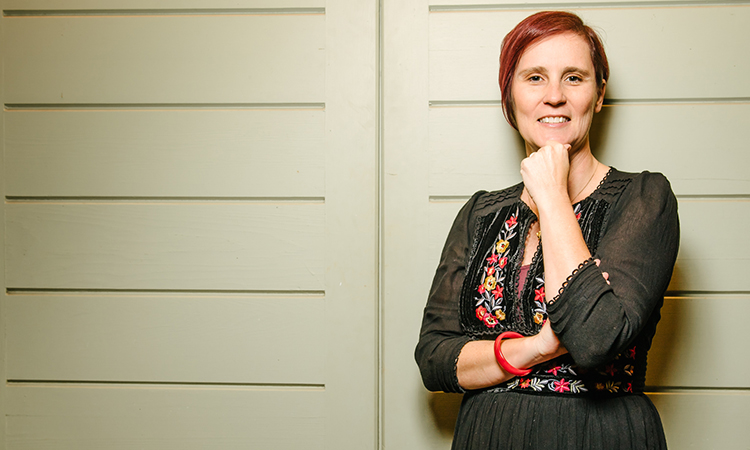 Natalie D-Napoleon is from Fremantle, Australia. Her writing has appeared in Southerly, Westerly, Meanjin, Griffith Review, and Australian Poetry Journal. In 2018 she won the Bruce Dawe National Poetry Prize. Her debut poetry collection First Blood will be released by Ginninderra press in 2019.
Natalie D-Napoleon is from Fremantle, Australia. Her writing has appeared in Southerly, Westerly, Meanjin, Griffith Review, and Australian Poetry Journal. In 2018 she won the Bruce Dawe National Poetry Prize. Her debut poetry collection First Blood will be released by Ginninderra press in 2019.
Black Swan
Dedicated to those who continue to fight for the preservation of the Beeliar wetlands
I pluck from my
ribs one black feather
then another three
arise in its place.
I remember feeding bread
to the black swans with
my father as a child
at Bibra Lake, how ripping
off one chunk would bring
a bank of swans; a
magnet through the
sand to attract iron ore.
My shoulders itch,
spines of feathers
spiking through skin.
I flap my arms, not yet
ready to fly. The Noongar
throw a handful of sand
into a body of water,
speak language,
let the Waugal
know we are here.
Now, we live in the time
of the Mass Forgetting.
Now, bulldozers come
to scrape and wrench
the earth clean for
another road-to-nowhere,
road-to-nowhere, road-
to-nowhere…Fists full
of sand pour into the lake
but there is no ceremony,
only the low din and vibration
of con-struction/de-struction.
I remain the good wife;
I whistle to my cygnets,
I flap my wings three times,
honk and hiss at the
golden demon —
rara avis in terris
nigroque simillima
cygno. My fleshy lips turn
into a keratin-skin bill,
flag-red, a memory:
eagles wrenching
arrogant white feathers;
falling, falling, falling.
A sepulchral cloak of
black loaned from
a saviour of ravens.
The white tips remain
on my wings, tracks of
my fall marked by stars of
flannel flowers. Kooldjak,
gooldjak, maali you will call
my Name. Even if you deny
my existence I continue:
a wedge of obsidian wings
beating beneath the
land’s surface.
*Kooldjak, gooldjak, maali — “black swan” in various Noongah languages.
October 2, 2019 / mascara / 0 Comments
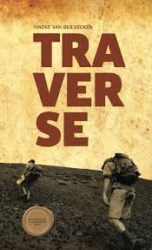 Traverse
Traverse
by Tineke Van der Eecken
Wild Weeds Press
ISBN 978-0648320678
Reviewed by SAMANTHA TRAYHURN
Traverse by Tineke Van Der Eecken is a novel about the micro-offences that culminate in the end of a marriage. Physical distance and emotional distance. Wandering minds, snide remarks, broken trust. Part travel memoir, part personal reflection, it shows how a relationship doesn’t dissipate with a single wrong doing, but is slowly eroded by tides of actions that break a person down. At the core of the memoir, a wife (Van der Eecken) recounts a 5-week traverse through rugged Madagascan terrain – the territory of her husband’s affair with a work colleague – as she accompanies him on a field trip in an attempt to save their marriage. The premise alone is enough to pique interest. Some readers will identify this as an act of bravery, and others complete reckless abandon. Who would want to sleep in the same villages, swim in the same rivers, and eat the same meals, as their husband and his lover? This isn’t a typical divorce narrative, but we soon learn that there isn’t much that is typical about the relationship we observe.
Tineke and Dirk are a Belgian couple who spent their courtship and early married life in Africa, before moving to Australia and then England, following Dirk’s work as a geologist. At the time that the narrative takes place they have two children, and have just uprooted a life they had grown to love in Australia, to settle in Cotgrave, a small English village. As part of his new role, Dirk takes frequent field trips to Madagascar where he meets and falls in love with logistical manager, Fara. Tina is left to try and assemble a new life in Cotgrave, while sensing that her husband is drifting away from her.
We had met in Africa and we had married in Africa… We had our children in Africa. Was I now becoming associated with middle-class English life for him? I had no part in the choice of our home base, but it became clear that he was looking at me across a distance… (39).
After each trip Dirk returns more and more enamoured with Madagascar, and Tina soon learns that it isn’t just the place, but also another woman, that has won his affections.
Early on in the Prelude we learn that this story is being recounted six years after the fact, and is a collection of memories filtered through anger and a sense of betrayal, but most of all a desire to comprehend just what went wrong. “I must do this – must record to understand,’ (12) Van der Eeken states as she sits down to write her memoir.
With this proclamation readers quickly understand that this isn’t a travel story simply penned for entertainment and a love for far off lands. If anything, to Van der Eecken, Madagascar evokes at best discomfort, and at worst disdain. The country becomes entangled with her bitterness so much so that it becomes a third accomplice in the affair. It is after the first part of the book (Tremors) when Dirk’s unfaithfulness is revealed, that Tina decides she must overcome her negative feelings towards the place, and embark on his final trek with him, if the marriage has any hope of survival, “We would not be able to continue together unless we resolved what separated us most. I needed to go to Madagascar with him.” (71).
From the converted railway carriage where the author writes, it is as though even after an extended period of time, the act of writing is a salve for a deeply personal wound that can only be truly healed by retracing.
At times while reading, I felt weighed down by the repetition and self-pity of the narration– it is difficult to endure the circulatory thinking of a scorned partner, perhaps because it recalls repressed feelings, or makes us think about how we would behave in the same situation. That being said I found myself drawn in: I wanted to know just what the author was capable of enduring, and how she was able “to traverse and emerge on the other side” (9). Van der Eecken’s writing is at its strongest when she is truly present and offers her observations of the landscapes and cultures she experiences: “The roads built by the French reminded me of other rural roads in Africa. Once the industrious (and mineral greedy) colonial administrations had left, the roads had gradually deteriorated and made it impossible for motorised transport to pass. Now they looked like honeycomb.” (121). “In the last few years vanilla has increased from 30 to 190 euro per kilo” (133). “There were no independence monuments, no little shops, no signs of any contact with the outside world.” (151). These interesting facts and tidbits not only provide a counterpoint to Van der Eecken’s internal conflict, but also give an insight into who this woman is when she isn’t pining for her husband. She is worldly, compassionate, astute, creative, strong. It is a stark reminder of what jealousy and fear of rejection can stir in a person.
Many readers will find it hard to like Dirk, let alone understand the author’s desire to remain married to him. He is presented as belittling and mean; self-absorbed and cold. When Van der Eecken expresses that she misses her career, he responds off-handedly, “what career? You never had one” (56). When she talks about the book that she has been working on for a number of years while juggling family life, he snidely comments, “you’ll never finish that book… You better look for a real job” (29). When she is seized with fear and can’t cross a makeshift bridge during the trek, he scurries past her and utters over his shoulder “crawl if you have to” (162), never offering a hand. Of course, we are receiving one-sided memory, but the cracks in the relationship seem clear early on. Perhaps this callousness is Dirk’s way of distancing himself so he can pursue the love that he feels for Fara. So, when Van der Eecken documents moments of affection or making love, I was always surprised and a little bit disappointed. I suppose I wanted her to deny him, but I was reminded of how when anger and love mingle, things are only ever further complicated by these fleeting moments of romance.
One of the biggest questions that Traverse raised for me is, how much is a sense of place tied to a sense of self? Here, a woman who has been following her husband and his career all over the world senses that she has lost something along the way. In the final section of the book (Postlude: A sense of home) when Van der Eecken thinks back to sitting outside the renovated railway carriage in Australia with her friend Ros, she realises that by identifying a sense of belonging, she feels at ease: “I felt like a river that, after a long drought, had returned to its riverbed” (211). In this section Van der Eecken goes on to hint at the true motive for penning her story: overcoming an acceptance of betrayal that began with her father and followed her all her adult relationships.
I had lost all trust in my father, and by extension, in men. When the man I loved back then betrayed me in a similar way, it was the beginning of false starts in my own relationships, the compulsion to follow my parents’ patterns (211).
While not a perfect piece of literature, Traverse is a real account of the complexities of relationships, and is a rewarding reading experience that demonstrates how one can marry physical adversity with emotional adversity to gain the strength to go on.
SAMANTHA TRAYHURN is a writer living on the Central Coast of NSW. Her work has appeared in Westerly, Overland, LiNQ Journal, eTropic, and others. She is currently a doctoral candidate at Western Sydney University. She is also the editor of Pink Cover Zine.
September 18, 2019 / mascara / 0 Comments
Global South Salon
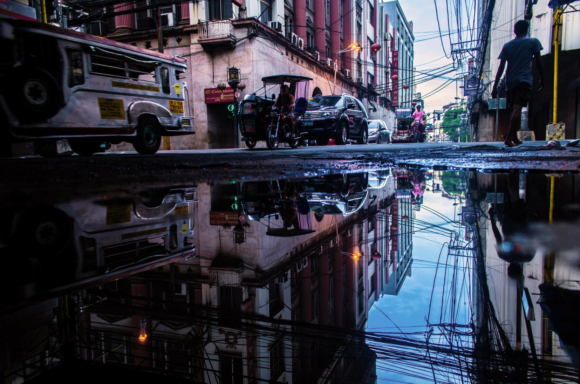
We were thrilled and honoured to have participated in an exciting, free public event at the World Literature and Global South Conference (23-25 August, 2019) co-hosted by Peking University and the School of Languages at the University of Sydney, convened by Professor Yixu Lu.
The Global South Salon is a creative submersion into the colloquium themes from diaspora writers and translators who live and work in Sydney, and whose ancestries trace to the Global South. They have lived in the United Kingdom, United States, Germany, Africa, Mexico and Australia. They share resistant imaginaries.
The writers were introduced by Dr Toby Fitch with a brief introduction by award-winning poet Dimitra Harvey.
Featuring six award winning writers: Mario Licon Cabrera, Anuapama Pilbrow, Lachlan Brown, Debbie Lim, Michelle Cahill, Christopher Cyrill.
This stellar conference featured authors from Argentina, China, Egypt, Indonesia, the Phillipines, Myanmar, New Caledonia, and New Zealand, with keynotes by Alexis Wright and Gauri Viswanathan. Alexis Wright is an Indigenous Australian writer best known for winning the Miles Franklin Award for her 2006 novel Carpentaria and the 2018 Stella Prize for her “collective memoir” of Leigh Bruce “Tracker” Tilmouth. Gauri Viswanathan is the author of Masks of Conquest: Literary Study and British Rule in India (Columbia, 1989; 25th anniversary edition, 2014) and Outside the Fold: Conversion, Modernity, and Belief (Princeton, 1998) which won several awards.
The conference also featured a launch of a documentary screening of Gangalidda political leader Clarence Walden, a witness to the cruel racism experienced by Aboriginal people during the 1950s and 60s on the remote Doomadgee Mission in the Gulf of Carpentaria. The documentary addresses the enormity of the political struggles with governments and mining companies in the modern era. Here is a link to the ABC’s audio recording of Nothing But the Truth,
(Credits: Interviewer: Alexis Wright. Sound Engineer: Russell Stapleton / Ben Denham. Producer: Ben Etherington)
The creative component of the conference is curated by acclaimed author and academic, Nicholas Jose.
September 8, 2019 / mascara / 0 Comments
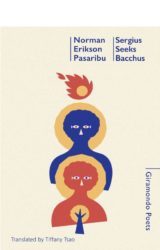 Sergius Seeks Bacchus
Sergius Seeks Bacchus
by Norman Erikson Pasaribu
translated by Tiffany Tsao
Giramondo
ISBN:9781925818109
Reviewed by DMETRI KAKMI
Born to a Muslim father and a Protestant mother, Norman Erikson Pasaribu was raised in Jakarta, Indonesia, but his roots lie in the ethnic Christian Batak community of Sumatra. Though he writes in Indonesian, Pasaribu’s poetry collection Sergius Seeks Bacchus (translated by Tiffany Tsao) is a vehicle for queer voices outside western Anglophone experience, offering a glimpse into a world that is all too real for non-conforming individuals in much of the contemporary world.
As of this writing, in more than seventy countries it is a crime to be gay. In ten it incurs the death penalty, and in no country in the world are LGBTQI people treated equally under the law. Exposure, humiliation, forced medical intervention to affect a ‘cure’, and curtailment of basic freedoms are everyday realities. ISIS tossed gays from minarets, and in Chechnya men and women suspected of homosexual practices are incarcerated in concentration camps. In parts of Indonesia, homosexuality is illegal under Sharia Law and punishable by flogging.
This in effect is the shadow under which Pasaribu writes—the kind of world western urban gays might believe was left behind in the 1970s, with the rise of gay liberation. And although the poet writes about Indonesia, his references are recognisable and relatable because they are drawn largely from a western pop culture ethos that pulls in television, magazines, social media, as well as the Judea-Christian tradition. Even Dante Alighieri gets a look-in with poems such as “Inferno”. “Purgatorio”, “Paradiso”, and “La Vita Nuova”, representing the symbolic journey of ascent and renewal that is at the heart of the book.
From the outset, however, Pasaribu evokes the spirits of Sergius and Bacchus, two early Christian martyrs who, like Saint Sebastian, have been absorbed into the global male queer sensibility. Mixing defiance and submission, all three are part victim, part rebel, true believers who suffer for their convictions; and, therefore, transcend oppression and persecution. As seen in the eponymous poem, death is not final but a doorway to redemption.
Snake-like, you shed your short-lived skin
and commence/continue your quest. Now the light from on high
passes through you. You’re luminous. Meanwhile, out west
in decrepit Rome sits Galerius, oblivious his end is nigh.
You seek your beloved — he appeared to you in your cell,
his body glowing silver as he whispered, Endure,
for I will always watch over you. With him you will rise
up to heaven and wonder at how familiar
it all feels. Hand in hand, you two will stroll the streets,
introducing one another to everyone you meet.
(p.5)
Far from saying homosexuals are better of dead, Pasaribu disavows doctrinaire notions of martyrdom in favour of an earthly paradise in which same-sex couples walk hand-in-hand without fear. His lines are metaphor for a lapsed Christian who follows in the footsteps of gay club anthems like ‘Go West’ by the Village People (later covered by The Pet Shop Boys) and ‘In the Evening’ by Sheryl Lee Ralph.
An admission. As an atheist who has lived most of his life in Australia, I had trouble getting my head around the notion that gay people continue to hide in the 21st century, especially to appease religious dictates. It seemed retrograde, like reading a book about homosexuality from the 1950s. But such is Pasaribu’s sleight of hand that he quickly popped my insular bubble to remind me what life would be like if I still lived in Turkey, where I was born. Indeed, most of my Turkish gay friends seek shelter in the closet or sham marriage.
The most revealing poem in this regard is ‘On a Pair of Young Men in the Underground Car Park at fX Sudirman Mall’. Here two young men sit in a Toyota Rush ‘parked in the corner of level P3,/stealing a little time and space for themselves,’ and poignantly ‘exchanging kisses wide-eyed — keeping watch as one/for security guards or janitors’ that might interrupt their stolen moments.
Two things stand out in this cornerstone poem. First, the poem recalls the tone set by C. P Cavafy, the Greek godfather of all queer clandestine confessionals. Second, the secretive location, (simultaneously public and private), brings to mind early Christians worshipping in catacombs beneath Rome streets, awaiting their turn to rise and take over.
Literally and metaphorically driven underground by unorthodox desires, Pasaribu’s primary stance is seeking; his is a restless questing as his cast of characters search for a shared history that is textually present but remains elusively out of reach. And because the queer body politic walks a fine line between visibility and invisibility, acceptance and rejection, it could be said that this collections is about absence in presence, and presence in absence.
Despite advances in some parts of the world, the homosexual is still contested territory. Both present and absent in society, the homosexual is made painfully visible and inextricably invisible through obsessive, circular, discourse that seeks to simultaneously comprehend and to exclude. This contradiction is central to Pasaribu’s poems. Caught in the crossfire are men and women who continue to assert the validity of their lives against a tyrannical ideology.
The other emblem Pasaribu draws on is the tree—not surprising, given the book’s original title was Like Trees. But Pasaribu had a last minute change of heart, perhaps to align the book with evolving queer narratives; and, more important, to signal that in each of the fifty-nine poems the emphasis is on pairing, bringing people together, whether in love, quest, or Socratic dialogue.
As an animist, I lean more towards trees than to Christian iconography. That is just as well since the tree is a universal archetype that can be found in different traditions around the world. They are symbols of physical and spiritual nourishment, transformation, liberation, and union. Moreover, Jungian psychology sees the tree as a symbol of individuation, bringing together the feminine and masculine principles.
In light of this, it is interesting to follow Pasaribu as he weaves a path between doctrinaire religion and tree-worshipping paganism. This is best seen in “He and the Tree” where an individual stands at the border of civilisation and the natural world, seeking forgiveness from the tree that shelters his car from the sun in the company parking lot. As the tree listens, it remembers his friend who was ‘ripped from the earth for being too close to the foundation’, thus losing a chance to tell his friend ‘how much he loved him’.
If he were here, he would take him to a church. At the altar
they would be joined together before god, who had three branches
— like a tree — and their children would fill the lot, every
single square inch, so that someday everyone who passed
would think a forest had sprung up in the city’s heart.
The man hugged the tree and tree hugged the man.
(p.4)
This poignant, wryly observed poem would have been an ideal way to end the collection. It brings together the book’s main symbolic and ideological positions in an act of compassion and empathy that yields fruit; and that in a way is what Pasaribu hopes to achieve in this slender but weighty tome that both affirms and transcends the classification of queer poetry.
DMETRI KAKMI is a writer and editor based in Melbourne. For 15 years he worked as a senior editor at Penguin Books. His fictionalised memoir Mother Land was shortlisted for the New South Wales Premier’s Literary Awards in Australia; and is published in England and Turkey. He is the editor of the acclaimed children’s anthology When We Were Young. His new book The Door and other Uncanny Tales will be published in 2020.
September 8, 2019 / mascara / 0 Comments
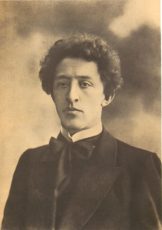 Alexander Alexandrovich Blok was born in 1880 and died in 1921. He is celebrated as the foremost of the Russian symbolists. His first book was entitled Verses about the Beautiful Lady.
Alexander Alexandrovich Blok was born in 1880 and died in 1921. He is celebrated as the foremost of the Russian symbolists. His first book was entitled Verses about the Beautiful Lady.
Ночь,улиа,
фонарь, аптека
Ночь, улица, фонарь, аптека,
Бессмысленный и тусклый свет.
Живи ещё хоть четверть века —
Всё будет так. Исхода нет.
Умрёшь — начнёшь опять сначала
И повторится всё, как встарь:
Ночь, ледяная рябь канала,
Аптека, улица, фонарь.
| Night, a street-lamp and a chemist’s
Night, a street-lamp and a chemist’s.
This lustreless, meaningless globe.
Have twenty more years, or some more.
No one’s ever known an exit.
You’ll die. Start it all over again:
everything repeats the past.
Night, an ice-cold ripple
in the canal, a street-lamp and a chemist’s.
|
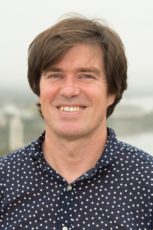 Paul Magee is author of Stone Postcard (2014), Cube Root of Book (2006) and the prose ethnography From Here to Tierra del Fuego (2000). Paul majored in Russian and Classical languages, and has published translations of Vergil, Catullus, Horace and Ovid. He is currently working on a third book of poems, The Collection of Space. Paul is Associate Professor of Poetry at the University of Canberra.
Paul Magee is author of Stone Postcard (2014), Cube Root of Book (2006) and the prose ethnography From Here to Tierra del Fuego (2000). Paul majored in Russian and Classical languages, and has published translations of Vergil, Catullus, Horace and Ovid. He is currently working on a third book of poems, The Collection of Space. Paul is Associate Professor of Poetry at the University of Canberra.
 Bronwyn Lovell’s poetry has featured in Best Australian Poems, Meanjin, Southerly, Cordite, Antipodes, Rabbit, Verity La, and Strange Horizons. She has won the Arts Queensland Val Vallis Award and the Adrien Abbott Poetry Poetry Prize. She has been shortlisted for the Judith Wright, Fair Australia, Newcastle, Montreal, and Bridport Prizes.
Bronwyn Lovell’s poetry has featured in Best Australian Poems, Meanjin, Southerly, Cordite, Antipodes, Rabbit, Verity La, and Strange Horizons. She has won the Arts Queensland Val Vallis Award and the Adrien Abbott Poetry Poetry Prize. She has been shortlisted for the Judith Wright, Fair Australia, Newcastle, Montreal, and Bridport Prizes. Aiden Heung is a native Chinese poet, born and raised on the edge of the Tibetan Plateau; he holds an MA in literature from Tongji University in Shanghai where he currently works and lives. His poems in English are published or forthcoming in many online and offline magazines, most notably Literary Shanghai, The Shanghai Literary Review, Cha: An Asian Literary Journal, New English Review, A Shanghai Poetry Zine, Aesthetic Apostle among many others. He is an avid reader. He can be found at
Aiden Heung is a native Chinese poet, born and raised on the edge of the Tibetan Plateau; he holds an MA in literature from Tongji University in Shanghai where he currently works and lives. His poems in English are published or forthcoming in many online and offline magazines, most notably Literary Shanghai, The Shanghai Literary Review, Cha: An Asian Literary Journal, New English Review, A Shanghai Poetry Zine, Aesthetic Apostle among many others. He is an avid reader. He can be found at  Angela Costi has four poetry collections: Dinted Halos (Hit&Miss Publications, 2003), Prayers for the Wicked (Floodtide Audio and Text, 2005), Honey and Salt (Five Islands Press, 2007) and Lost in Mid-Verse (Owl Publishing, 2014). Her full-length play, Shimmer, has been remounted at several South Australian secondary colleges, 2016-17.
Angela Costi has four poetry collections: Dinted Halos (Hit&Miss Publications, 2003), Prayers for the Wicked (Floodtide Audio and Text, 2005), Honey and Salt (Five Islands Press, 2007) and Lost in Mid-Verse (Owl Publishing, 2014). Her full-length play, Shimmer, has been remounted at several South Australian secondary colleges, 2016-17. Carolyn Gerrish is a Sydney poet. She has published five collections of poetry. The most recent The View from the Moon (Island Press, 2011). She enjoys performing her work and is currently working on her sixth collection.
Carolyn Gerrish is a Sydney poet. She has published five collections of poetry. The most recent The View from the Moon (Island Press, 2011). She enjoys performing her work and is currently working on her sixth collection. Mark Anthony Cayanan is from the Philippines. They obtained an MFA from the University of Wisconsin in Madison and are a PhD candidate at the University of Adelaide. Among their publications are the poetry books Narcissus (Ateneo de Manila UP, 2011) and Except you enthrall me (U of the Philippines P, 2013). Recent work has appeared or is forthcoming in Foglifter, The Spectacle, Dreginald, NightBlock, Crab Orchard Review, Cordite, and Lana Turner. A recipient of fellowships to Civitella Ranieri and Villa Sarkia, they teach literature and creative
Mark Anthony Cayanan is from the Philippines. They obtained an MFA from the University of Wisconsin in Madison and are a PhD candidate at the University of Adelaide. Among their publications are the poetry books Narcissus (Ateneo de Manila UP, 2011) and Except you enthrall me (U of the Philippines P, 2013). Recent work has appeared or is forthcoming in Foglifter, The Spectacle, Dreginald, NightBlock, Crab Orchard Review, Cordite, and Lana Turner. A recipient of fellowships to Civitella Ranieri and Villa Sarkia, they teach literature and creative Natalie D-Napoleon is from Fremantle, Australia. Her writing has appeared in Southerly, Westerly, Meanjin, Griffith Review, and Australian Poetry Journal. In 2018 she won the Bruce Dawe National Poetry Prize. Her debut poetry collection First Blood will be released by Ginninderra press in 2019.
Natalie D-Napoleon is from Fremantle, Australia. Her writing has appeared in Southerly, Westerly, Meanjin, Griffith Review, and Australian Poetry Journal. In 2018 she won the Bruce Dawe National Poetry Prize. Her debut poetry collection First Blood will be released by Ginninderra press in 2019. Traverse
Traverse
 Sergius Seeks Bacchus
Sergius Seeks Bacchus Alexander Alexandrovich Blok was born in 1880 and died in 1921. He is celebrated as the foremost of the Russian symbolists. His first book was entitled Verses about the Beautiful Lady.
Alexander Alexandrovich Blok was born in 1880 and died in 1921. He is celebrated as the foremost of the Russian symbolists. His first book was entitled Verses about the Beautiful Lady. Paul Magee is author of
Paul Magee is author of